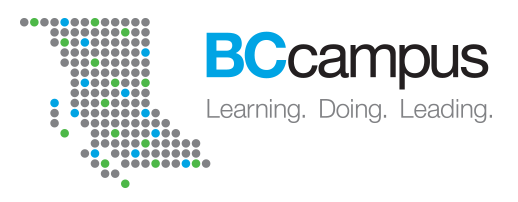In this Issue: Instructional Design for Transitioning your Remote Courses
-
- Multi-Access Delivery Models for Uncertain Times
- Remote and Online Course Design: Self-Help and Supported Options
- A Warning About Templates and Canvas Commons Updates
- Upcoming Free Webinars from BCcampus
- DEU support and contact information
Multi-Access Delivery Models for Uncertain Times
 With President Stoicheff’s announcement that “we will see a significant increase to in-person, on-campus instruction for Fall 2021”, many faculty and instructional staff are beginning to think about how best to design their fall courses. With uncertainty still lingering in all our minds, we may all be looking for some flexible options for teaching and learning design that not only provide autonomy and flexibility for students, but provide a little insurance against emergency measures as well.
With President Stoicheff’s announcement that “we will see a significant increase to in-person, on-campus instruction for Fall 2021”, many faculty and instructional staff are beginning to think about how best to design their fall courses. With uncertainty still lingering in all our minds, we may all be looking for some flexible options for teaching and learning design that not only provide autonomy and flexibility for students, but provide a little insurance against emergency measures as well.
Blended, HyFlex, and Multi-access design models all leverage face-to-face (F2F), synchronous and asynchronous activities to deliver flexible learning options for students. But how do we implement these designs in our classes and what are the considerations we must look at when increasing the flexibility in our course designs?
Remote and Online Course Design: Self-Help and Supported Options
Self-Help for Remote Course Design
In the last edition of the DEUD, we shared an Online Course Beginning-of-Term Checklist, which serves primarily as a last-minute technical guide (i.e., how to “turn the lights on” for your online students, and invite them to get started in your course). However, if you are looking for something that digs a bit deeper into the instructional design of your Canvas courses, the Course Design Checklist might be helpful. This checklist will support you in achieving the Learning Technology Ecosystem Principles and other principles of effective instructional design. Use this resource to self-assess your courses.
The Course Design Checklist is part of a collection of other Course Design Resources from the Move to Canvas team that is worth checking for more self-help tools.
Supporting USask instructors in improving the design of their online and blended courses is at the core of what the DEU Instructional Designers do. In addition to supporting new online course developments, we could also assist you through the following services:
-
- Online Course Design Review: If you have an existing online course, one of the Instructional Designers can review your course, make suggestions for improvements, and support you in any technical changes that might follow. At DEU, we often make use of tools like the OLC Course Design Review Scorecard to do a quality check of existing online courses, and can do so while being able to rely on previous experiences working on hundreds of different online courses. If you would love to have a “second set of eyes” on your online course, this is a great option!
- Remote Course Transition Plan: This service is intended for courses developed as part of the 2020-2021 emergency remote response, but that you (or your Department) are now hoping will have some longevity. The great work you put in to your remote course can be used as the foundation for a quality online course, can be re-purposed for use in a blended course, or can be utilized as part of your in-person course. An Instructional Designer can help you with developing and executing your Remote Course Transition Plan.
To arrange an Online Course Design Review, or for help developing a Remote Course Transition Plan, get in touch with an Instructional Designer through deu.support@usask.ca.
A Warning About Templates and Canvas Commons Updates
In previous blog posts, DEU has shared some information about Canvas Commons, and how the use of customizable course and module templates can be a great way to support quality online course design, as well as provide a consistent learning experience for students across multiple courses within a program. Many instructors have also made use of the generalized USask Canvas Course Template, and since being published to Canvas Commons in August 2020, it has since been downloaded into 714 unique Canvas courses!
We at DEU still think using Canvas Commons to create and share learning resources, including customizable module/course templates, is great. However, we’ve recently learned the hard way to watch out for a weird thing that can happen when Updates are made to Canvas Commons resources, where a template course can be re-imported in its entirety, which will overwrite edited items in the course. Particularly if you are sharing or managing course templates or other Canvas Commons resources that have been imported into multiple courses, you should give this a read.
 Upcoming Free Webinars from BCcampus
Upcoming Free Webinars from BCcampus
Choose Your Own Adventure May 21, 2021 – We know that giving students choice fosters engagement and equity, but how much is too much choice? In this session, you’ll “Choose Your Own Adventure” and explore student choice, student agency, and how to facilitate meaningful choice without adding to your workload.
Cooking with H5P: In the Kitchen with Kyle Mackie May 27, 2021 – BCcampus will talk with Kyle about his approach to designing interactive activities and he will share tips and tricks that he uses in his own H5P cooking.


